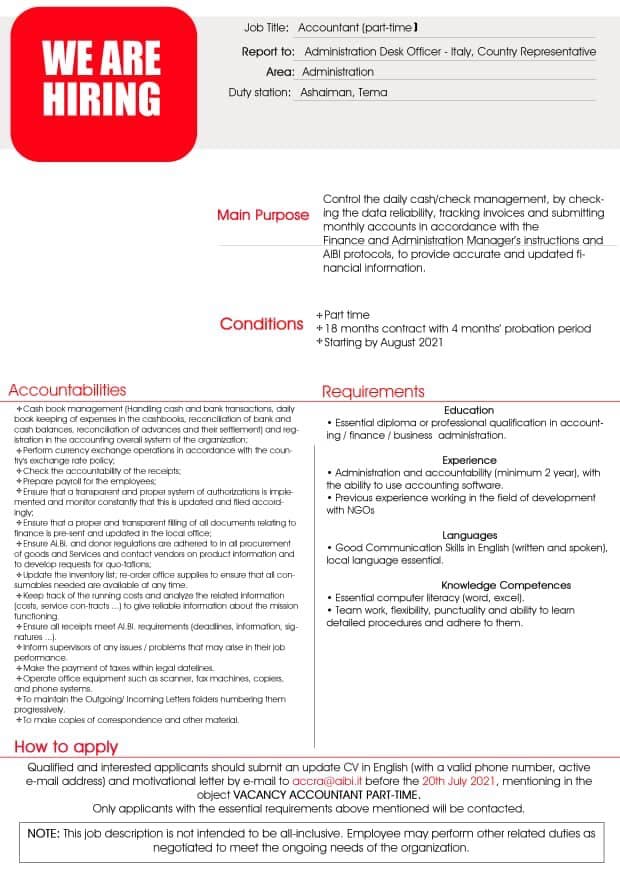Despite its relative freedom, the media in Africa for that matter Ghana do face some challenges. Journalists are often poorly paid, under resourced, and often lack training especially in Religion Reporting, an area many journalists do not specialize excerpt for few due to their faith.
In spite of these, quality newspaper production, radio and television broadcast as well online media programming, are growing steadily. With respect to newspapers, the ownership landscape of newspapers is politically polarised with most newspapers supporting either the government or opposition parties.
Media organisations assign reporters to areas to which they are responsible. These are called beats. Education, Judiciary, Business, Politics, Health, Sports and Foreign Affairs are some of the visible beats in journalism but hardly do journalists focus on Religious news.
However, few organisations accord religion writers this identity to distinguish them or give them a feeling of independence. Instead, most organisation’s religion reporters are attached to other departments or desks. Hence, most pages of purely religion news are published in segments or pages of newspapers or magazine not similar to religion in character or orientation.
In Ghana for instance, there are a wide range of national and private dailies. Until very recently, many of these dailies did not have pages dedicated to religious news, nor did they have religion reporters primarily assigned to cover the beat.
In fact, some newspapers in Africa including Ghana (which ranks amongst the most widely circulated and widely read) do not have designated pages for religious news as well as reporters specifically to cover religious news, nor do they give priority to religious news or creating a Religious desk except, of course, when it is scandalous or intertwined with politics or violence.
Even where we have religion reporters, some of them are still saddled with the responsibility of covering other beats. Some are even assigned to cover three beats: religion, women’s affairs and youth development.
Editors tend to be more interested in business or political news, and are resistant to religion news. This is manifested by the amount of time (electronic media) or space (print media) or budget made for religion news. The general attitude of the media toward religion is that it does not only attract poor readership, but news about it does not sell or fascinate viewers or readers unless it is negative or scandalous.
This posture sometimes kills the motivation of reporters who have interest in religion to do comprehensive reporting because they have to cope with time and space constraints in their organisation’s programme or news budget. Even then, the news may be published in few paragraphs, or dropped in waste paper bin.
In some print media outfits for instance, religion reports account for only one or two pages per week where reporters are expected to squeeze in all writing. A few lucky ones have between 2 to 3 pages dedicated to religious news weekly. Where the news is urgent and must be published before pages come out, reporters are at the mercy of the News Editor who may decide to drop your religion news for politics or business news, which of course takes priority.
This, no doubt, can be very frustrating. Sometimes, you even feel inferior to your counterparts writing on politics or business beat because your work is treated as secondary and you are not accorded the kind of respect or privilege that others enjoy.
Another important obstacle to the success of a religion reporter in Ghana is poor technology. Even though the world is a global village through the grace of information technology (IT), many less developed countries have minimal IT.
Some still face added challenges of malfunctioning telephone systems or low internet capacity and Ghana is obviously one.
Ghanaian reporters have made strides in getting over these roadblocks, as they now have multiple IT service providers. However, due to poor/delayed payment of salaries, reporters sometimes cannot afford to subscribe to these services in their homes. Thus, they have to make use of the internet in the office, though that does not always solve the problem. There are organisations where reporters still have to queue up for access to the internet.
The Way Forward
Undoubtedly, the challenges are many. What about the solution? What can reporters do to improve the religion reporting? A religion reporter should be unbiased in covering and reporting any particular religion or practices, regardless of what his/her personal faith might be.
Religion Reporters should practice Responsible Journalism (RJ), not PR journalism. Listen to all parties involved in a matter and air their views. Bring all the cards to the table and leave the readers to decide. Do not take sides.
They should give more attention to reporting issues, not events; thus giving room for constructive debates from all parties and schools of thoughts. Such stories will make interesting reading to anyone- editors, professionals and even artisans; believers and non-believers.
Journalists reporting on religion should study other religions and be as objective as possible. They should also find a religious angle to business, politics or sports news and report in same manner. This also implies finding a human angle to every religious story. Of course, it will inspire novelty and interesting reading.
Religious leaders should be educated on the need to open up on their faith. There should be specialised training on religion reporting.
Media managers should be educated on the need to allocate more space to religion reporting since it is a very emotive and potent force in unifying or dividing the people.
This is a presentation by Damian Avevor to Students of University of Panama, Central America on Monday, October 7, 2013.




